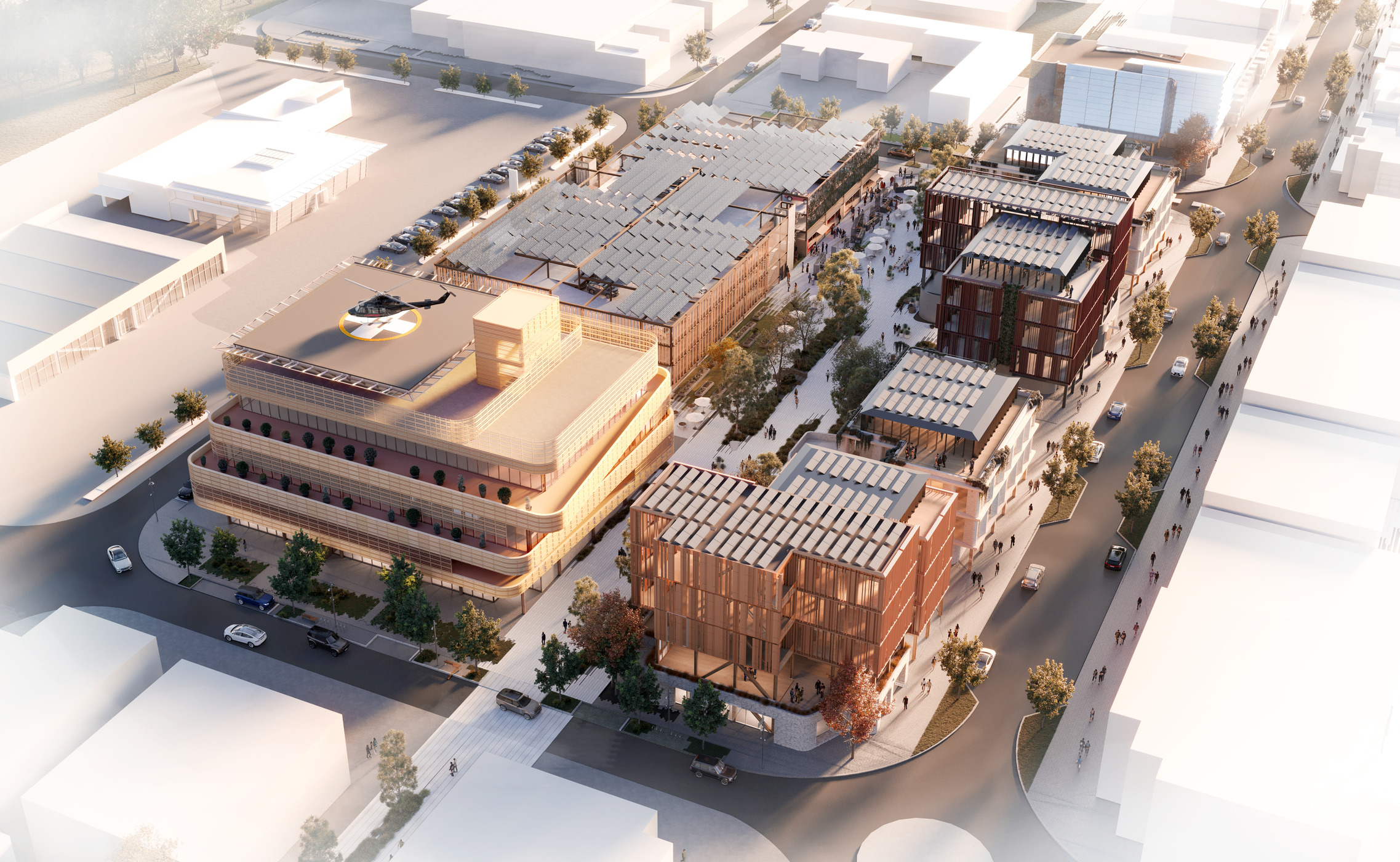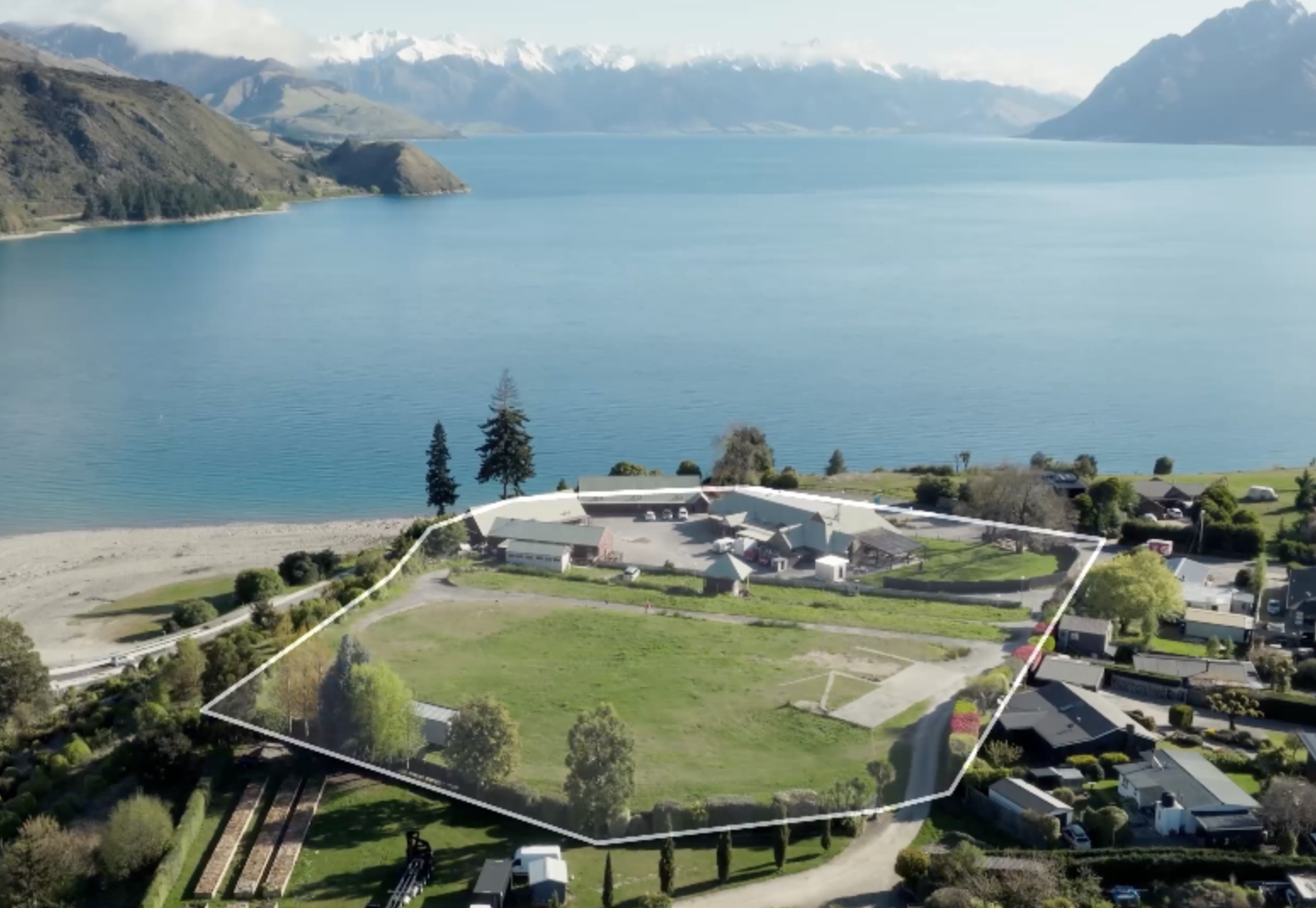Hot topics for candidates: Health services
Sue Wards
04 September 2025, 5:04 PM
 Whose role is it to plan and develop health infrastructure in the Upper Clutha?
Whose role is it to plan and develop health infrastructure in the Upper Clutha?Health services and infrastructure is the third hot topic facing the Upper Clutha which the Wānaka App has asked local body election candidates’ their views about.
The Upper Clutha has been underserved for years in access to health services: Our population is almost four hours’ drive from the nearest tertiary hospital and over an hour’s drive from an emergency department, and has to pay for services such as radiology and blood tests.
Health NZ Te Whatu Ora is currently undertaking a clinical services review for the wider Queenstown Lakes and Central Otago area which will be completed in December; meanwhile investors and other groups are moving ahead with plans for health infrastructure in the hope the public sector will come to the party.
The Wānaka App asked candidates for the Wānaka Ward of Queenstown Lakes District Council (QLDC) and the Wānaka Upper Clutha Community Board (WUCCB) who they think should be responsible for planning for and developing health infrastructure in this district.
Read more: Who is shaping the future of our health services?
Council candidates respond
Lyal Cocks: “Health NZ is responsible for producing a Clinical Services Plan (CSP) to identify what is needed and where. Private health infrastructure has and is being built in our region from which Health NZ can contract public services.
Based on the CSP, shortfalls can be identified and will need to be addressed. This is one of the focuses for the Regional Deal negotiations.
Barry Bruce: “Healthcare is a concern for many of our residents, particularly young families and our older residents, made even more critical given our remote location and lengthy travel distances to major healthcare facilities.
Ultimately healthcare is a nationwide social responsibility incumbent on central government. Despite this, local government does have a responsibility to represent our communities by advocating and lobbying central government to ensure adequate medical services are provided in a timely manner.
In addition where private medical facilities are being proposed, council should be proactive in enabling the planning and consenting process to progress quickly.”
Niki Gladding: “In my ideal world, health infrastructure and services are publicly delivered without the post-code lottery. But underinvestment has created pressing needs and a gap that the private sector is now stepping in to fill.
The government must respond in a way that ensures affordable, equitable access to public services. If that response involves leasing private infrastructure, the government is responsible for deciding where public services are needed and for following procurement rules to ensure the best deal for taxpayers.
The Queenstown-centric, developer-driven approach via Regional Deal is the wrong way to go about things if we want great health outcomes.”
Craig Gasson: “You would expect it to be central government. The entity we pay our taxes to and rely on to facilitate medical needs. As this seems not the case, we need to pivot for solutions.
This is where private/public partnerships are key. The health offerings or lack thereof have always been in plain sight. To say otherwise is disingenuous to us of the Upper Clutha.
I applaud the efforts of Health Action Wānaka to expose, and facilitate change.”
Yeverley McCarthy: “The provision and planning for health infrastructure in the district is not the purview of the QLDC, it is a central government issue. The QLDC is involved in health through their regulatory requirements in environmental, food and liquor. There is a need for advocacy in the space from the health experts and users in the area and this is happening now with the great work done by the Wānaka Health Action Group.
With the growth of the area it is inevitable that we have more health services here and the Roa project is certainly a very positive announcement.”
Nicola King: “Healthcare in New Zealand is designed to be universally accessible, which makes central government responsible for funding and delivering health infrastructure. However, it’s becoming increasingly clear that the system isn’t keeping up with the needs of our district. Which means local government is left in a difficult position.
While councils can’t fund health services directly, they can play a role in planning, advocating, and ensuring infrastructure aligns with community growth. We must be careful not to rely too much on privatised healthcare, as it can increase inequality in access.”
Quentin Smith, Cody Tucker, and Thorsk Westphal did not respond.
Community Board candidates respond
Simon Telfer: “Strictly it’s a central government role but we have an engaged community that came out in force for the initial health public meeting last year. Our voice has been heard and we need to be grateful for Health Action Wānaka continuing community advocacy.
I’m proud to have stood up and said it’s time for action, particularly with regards to the 24 hour urgent care service.”
John Wellington: “The Ministry of Health through Health New Zealand should be responsible for planning and developing health facilities in the district. Council and the community have a key role advocating for these services especially where the ministry has failed to recognise or provide the necessary level of services the rapidly growing Central Otago community desperately require.
We need to ensure that the location of any new hospital or facility serves the whole Central Otago community equitably and I would argue that Cromwell rather than Queenstown or Wānaka would be the best location.”
Linda Joll: “Ideally our health system would be funded planned and developed by our national health system, however the district has been completely let down to the bottom of the barrel; the district now has a health crisis, with emergency, surgeries, birthing, cancer treatments, mental health, dental treatments, etc.”
Kathy Dedo: “Ideally central government should build and provide core services like health care. If there are collaborative opportunities for private or for-purpose sectors to invest and enhance the infrastructure to support these services, I’m supportive of considering these options.”
Chris Hadfield and John Bache did not respond.
PHOTO: Supplied







